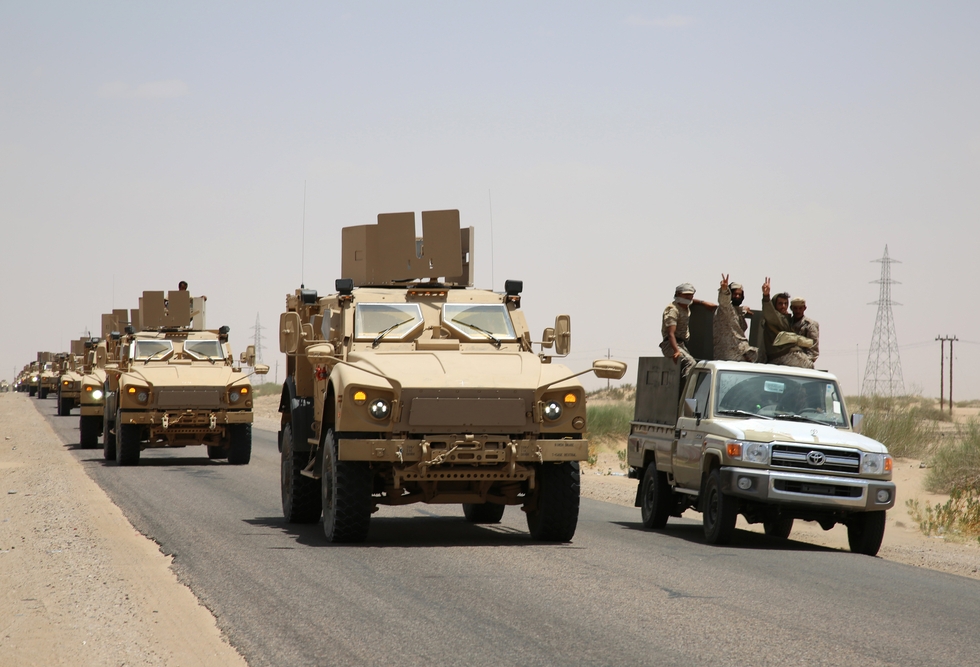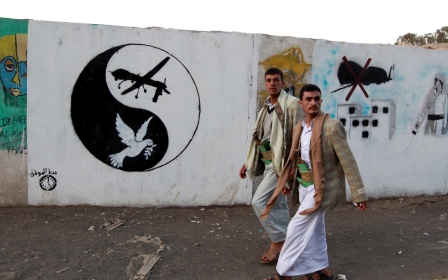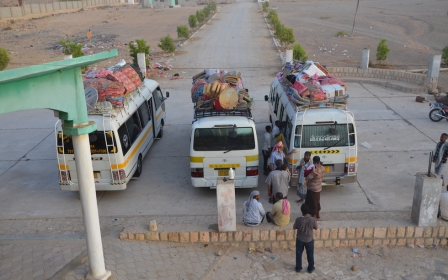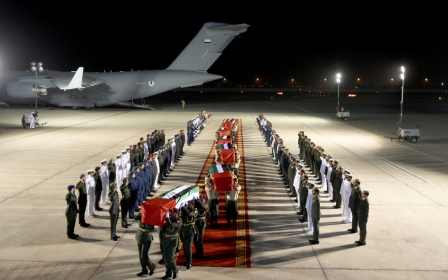Yemen government shuns talks, begins major military push

Yemen's exiled government backed out of UN-brokered peace talks as loyalist forces supported by a Saudi-led coalition launched a major offensive against Houthi militia on Sunday.
A military official said the offensive aimed to push the militiamen out of the oil-rich Marib province east of Sanaa and eventually move on the capital, which the rebels seized a year ago.
President Abd Rabbuh Mansour Hadi's government, which has fled to Saudi Arabia, had said on Friday it would join UN-mediated talks this week in Oman.
But in a short statement overnight, Hadi's office said the government would not attend talks unless the Houthis first accept a UN resolution demanding their withdrawal from territory they have captured.
The government decided "not to take part in any meeting until the militia recognises Resolution 2216 and agrees to implement it without conditions," the statement said.
The UN's special envoy for Yemen, Ismail Ould Cheikh Ahmed, had announced that the government and the Houthis agreed to attend talks in Oman, the only Gulf Arab state not in the Saudi-led coalition.
The United Nations has called repeatedly for a ceasefire in Yemen, which has been wracked by conflict since March when the coalition began air strikes against the Houthi militia as they advanced on the southern city of Aden.
On Sunday, the Saudi-led coalition said five Saudi soldiers had died on the Yemen border, but did not specify when or how.
Hadi had fled to Aden after the militia seized control of Sanaa.
The Yemeni government and Gulf Arab states have accused Shia Iran of backing the Houthi militia in an attempt to destabilise the impoverished country on Saudi Arabia's southern border.
Previous attempts at negotiations to end the conflict -- which the UN estimates has killed more than 4,500 people -- have repeatedly collapsed.
Pro-government forces have made significant gains in recent months as the coalition intensified its air strikes and sent modern equipment and reportedly thousands of troops to Yemen.
12,000 troops readied
Analysts have said the war is entering a new and potentially decisive phase as Gulf nations build up ground forces to battle the militia in the capital and their northern strongholds.
In July, loyalist troops freshly trained and equipped by the coalition pushed the militia out of Aden and four other southern provinces.
On Sunday, Hadi loyalists launched the "largest and fiercest offensive since operations began in Marib province", the military official said, adding that the militiamen were targeted in the Jufeinah, Faw and Thatt-Alra areas.
The militia "repelled an advance backed by Apache helicopters and Saudi and Emirati armoured vehicles" in Jufeinah, the Houthi-run Saba news agency said, citing a military source.
Saudi Brigadier General Ahmed al-Assiri, spokesman for the coalition, said the operation in Marib "has just started", adding in a statement to Al-Jazeera news channel that it was "going as planned".
Most of Marib is controlled by fighters and armed tribes allied to Hadi, but the Houthi militia and renegade troops loyal to ousted president Ali Abdullah Saleh still hold parts of the province.
Saleh, who ruled for 33 years before being forced out in 2012 after a bloody year-long uprising, has thrown the support of his loyalists in the army behind the Houthis.
The offensive launched on Sunday aims to "regain control of the provinces of Marib and Jawf, as well as of Sanaa," the official said after a military parade in Al-Aber in the eastern province of Hadramawt.
General Samir Shamfan, commander of the 23rd Mechanised Brigade based in Al-Aber, said about 12,000 soldiers have been assembled in the city some 270 kilometres (170 miles) east of Marib city.
The region's Wadia border crossing point has seen coalition military reinforcements flow in over the past few weeks in preparation for an offensive to retake Sanaa.
The coalition has also intensified its air raids against the rebels since a missile attack earlier month killed 60 Gulf troops, mostly Emiratis, at the Safer base in Marib.
New MEE newsletter: Jerusalem Dispatch
Sign up to get the latest insights and analysis on Israel-Palestine, alongside Turkey Unpacked and other MEE newsletters
Middle East Eye delivers independent and unrivalled coverage and analysis of the Middle East, North Africa and beyond. To learn more about republishing this content and the associated fees, please fill out this form. More about MEE can be found here.




